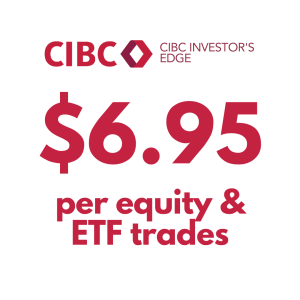
The transportation industry contributes to the economy at large. It facilitates the movement of people, goods, and services around the world. The industry facilitates strong economies and globalization. The businesses in the transportation industry build and operate trains, trucks, planes, ships, and more. Further, they carry on the operations of storage facilities and containers for the movement of goods. The transportation industry accounts for $6 trillion dollars globally. With such economic importance, many people smartly invest in transportation Exchange-Traded Funds (ETFs), among other kinds of investments. Transportation ETFs offer a simple way to invest in the transportation industry, as we’ll discuss in this article.
Related Reading: What is Personal Finance and Why is it Important?

Table of contents
ETFs serve as gateways to diversified investment opportunities. Thereby navigating the complexities of the transportation industry can be challenging. Transportation ETFs offer investors the opportunity to invest in the broader industry. Continue reading as we explore notable transportation ETFs in Canada and beyond, focusing on potentially stable and profitable investment opportunities.
Related Reading: Types of ETFs in Canada
CIBC Investor’s Line Offer
Up to $6.95 per online stock or ETF trade. Plus, there’s no minimum account balance.
What is a transportation ETF?
A transportation ETF is a type of investment fund. ETFs are publicly traded on a stock exchange, but share many characteristics of a mutual fund. Meaning, they pool funds from many investors and purchase assets in bulk. But unlike a mutual fund, an ETF is available for public trading.
As for transportation ETFs specifically, the primary focus of these funds is on companies within the transportation sector. Transportation ETFs aim to track the performance of an index of transportation stocks. In some cases, they may just focus on investing in the transportation sector with the objective of tracking or outperforming their overall performance. They create diversified exposure to companies involved with transportation to various degrees. These companies can include airlines, railroads, trucking, shipping, logistics and more.
Transportation ETFs allow investors to gain broad exposure to the transportation industry. Thereby avoiding the need to individually select and purchase multiple stocks. It is a convenient way to gain exposure in this sector. As with diversification, there are reduced risks associated with investing in a single company.
These ETFs vary in their composition. Some ETFs target specific segments within transportation, such as air transportation. Others offer a broader spectrum of the industry. Regardless of the specific ETF composure, investors often take interest in transportation ETFs. This is largely due to the importance of the transportation industry as a whole, and it’s compliment to other industries like retail.
What ETF tracks transportation?
Several ETFs track the transportation sector, some of which we will explore in the next section. Although, each ETF has its own composition and focus areas. This offers investors exposure to companies involved in various modes of transportation. Investors should consider factors such as expense ratios, management fees, holdings, sector allocation, and investment objectives. This allows the opportunity to choose an ETF that aligns with your investment goals and risk tolerance.
Related Reading: 5 Best Money Market ETFs in Canada
7 Best Transportation ETFs
Selecting the “best” transportation ETF depends on various factors. An investor must consider an ETF’s investment goals, risk tolerance, and expense ratios. Furthermore, investors must understand the specific areas within the transportation sector they would like to target. Each ETF has its focus, constituents, and strategy. It’s essential to research and align your investment goals with the best transportation ETF for yourself. Based on past performance, holdings, and overall popularity, some of the popular transportation ETFs include:
| Ticker Symbol | Inception Date | Yield | MER | Risk |
| IYT | October 6th, 2003 | 1.38% | 0.40% | Medium |
| XTN | January 26th, 2011 | 0.96% | 0.35% | Medium |
| JETS | April 28th, 2015 | 0% | 0.60% | High |
| FTXR | September 20th, 2016 | 1.50% | 0.60% | Medium |
| DRIV | April 18th, 2018 | 1.61% | 0.68% | High |
| HAIL | December 18th, 2017 | 2.62% | 0.45% | High |
| PEJ | June 23rd, 2005 | 0.46% | 0.58% | Medium |
CIBC Investor’s Line Offer
Up to $6.95 per online stock or ETF trade. Plus, there’s no minimum account balance.
1. iShares U.S. Transportation ETF (IYT)
iShares U.S. Transportation ETF (IYT) tracks the Dow Jones Transportation Average Index. It is the largest sector ETF with assets valued at $900 million. It offers exposure to various transportation sectors, including airlines, railroads, and trucking. Here’s some other notable characteristics of this fund:
- 18.18% of its current assets are in Union Pacific Corp.
- 17.43% of its current assets are in Uber Technologies Inc.
- 11.52% of its current assets are in United Parcel Service.
- Significant assets are within various airline companies.
2. SPDR Transportation ETF (XTN)
SPDR S&P Transportation ETF (XTN) follows the S&P Transportation Select Industry Index. Its assets include air freight and logistics, passenger airlines, highways and rail tracks, marine transportation, and passenger transportation. Here’s a few other quick facts:
- Matson Inc. is the EFT’s largest holding at 2.87% of its current assets.
- It currently has 45 holdings, with roughly 2% to 2.5% invested in each holding.
- Rather than invest largely in individual companies this ETF has Sub-Industry Allocations.
- Cargo Ground Transportation accounts for 30.72% of its holdings.
- Passenger Airlines account for 25.55% of its holdings.
- Air Freight & Logistics account for 19.27% of its holdings.
- Passenger Ground Transportation accounts for 9.40% of its holdings.
- Rail Transportation accounts for 7.72% of its holdings.
- Marine Transportation accounts for 7.34% of its holdings.
3. US Global Jets ETF (JETS)
US Global Jets ETF (JETS) is an ETF focused specifically on the global airline industry. It provides exposure to major airline companies. This includes passenger airlines and airplane manufacturing companies. Here are some details about this fund’s holdings:
- 10.89% of its current assets are in Southwest Airlines
- 10.81% of its current assets are in Delta Air Lines
- 10.54% of its current assets are in United Airlines
- 10.37% of its current assets are in American Airlines
- They maintain investments with airline manufacturing companies like Bombardier and Boeing.
Related Reading: Cash ETF Canada
4. First Trust Nasdaq Transportation ETF (FTXR)
First Trust Nasdaq Transportation ETF (FTXR) tracks the Nasdaq U.S. Smart Transportation Index. This includes companies involved in transportation, logistics, and distribution. 23.36% of the assets held by this ETF provide it exposure to the automobile sector. Below is a breakdown of this fund’s holdings:
- 8.43% of its current assets are in General Motors.
- 7.88% of its current assets are in Union Pacific Corp.
- 7.67% of its current assets are in Ford.
5. Global X Autonomous and Electric Vehicles ETF (DRIV)
Global X Autonomous & Electric Vehicles ETF (DRIV) is not strictly limited to traditional transportation. It mainly includes companies involved in electric and autonomous vehicles, which will be shaping the future of transportation. Other details about the holdings of this fund are below:
- Significant assets are held with various automobile companies.
- Toyota, Tesla, Honda and General Motors are a few.
- Significant assets are held with technology companies, set to change the future of automation.
6. SPDR Kensho Smart Mobility ETF (HAIL)
SPDR Kensho Smart Mobility ETF (HAIL) tracks the Kensho Smart Transportation Index. It focuses on next-generation transportation technology and innovation. This includes autonomous vehicles. They have a diversified portfolio with their highest investment in Aurora Innovation Inc., representing 2.37% of the total assets. This company focuses on autonomous freight technology.
7. Invesco Leisure and Entertainment ETF (PEJ)
Invesco Leisure and Entertainment ETF (PEJ) is an ETF that invests in leisure and entertainment companies. This is not your classic transportation ETF. There are intersections with the transportation and travel sectors. For example, Royal Caribbean Cruises is this ETF’s largest holding, representing 5.61% of its total assets. With investments in other transportation adjacent companies, this ETF may be one to consider.
Related Reading: 5 Best AI ETFs in Canada
What is the largest transportation ETF?
The largest transportation ETF by assets under management (AUM) is the iShares U.S. Transportation ETF (IYT). Historically, it is one of the most prominent transportation-focused ETFs in the market. ETFs are consistently changing in AUM size. This is due to market changes and investor preferences. Currently, iShares U.S. Transportation ETF (IYT) has about $900 million AUM.
This ETF provides exposure to a range of transportation-related companies. It includes airlines, railroads, and trucking. Its size, liquidity, and diversified exposure keep it strong. It has held its status as one of the largest and most well-known transportation ETFs available.
Related Reading: Best Vanguard ETF
How to invest in transportation?
Investing in the transportation sector can be done in various ways. ETFs are a great way to gain exposure to a sector, especially if you’re new to it. ETFs may protect you from some of the volatility of the stock market. However, they are still a risk. Due to ETFs being professionally managed, through diversified portfolios, they tend to have more stability.
Investing in transportation is a great idea as the industry is massive. It also facilitates many other areas of the economy and is an adjacent investment to many other industries. If you would like other methods of investing in the transportation industry consider stocks, mutual funds, infrastructure funds, and/or transportation bonds.
Before investing in transportation, it’s essential to conduct thorough research. Understand the specific risks associated with the sector. You must consider your investment goals and risk tolerance as well. Market conditions, regulatory changes, fuel prices, and global economic factors can impact the industry. Diversification is the best way to mitigate these risk factors. Good luck on your investing journey!
Read More: Bond ETF vs Stock ETF: Which is better?

